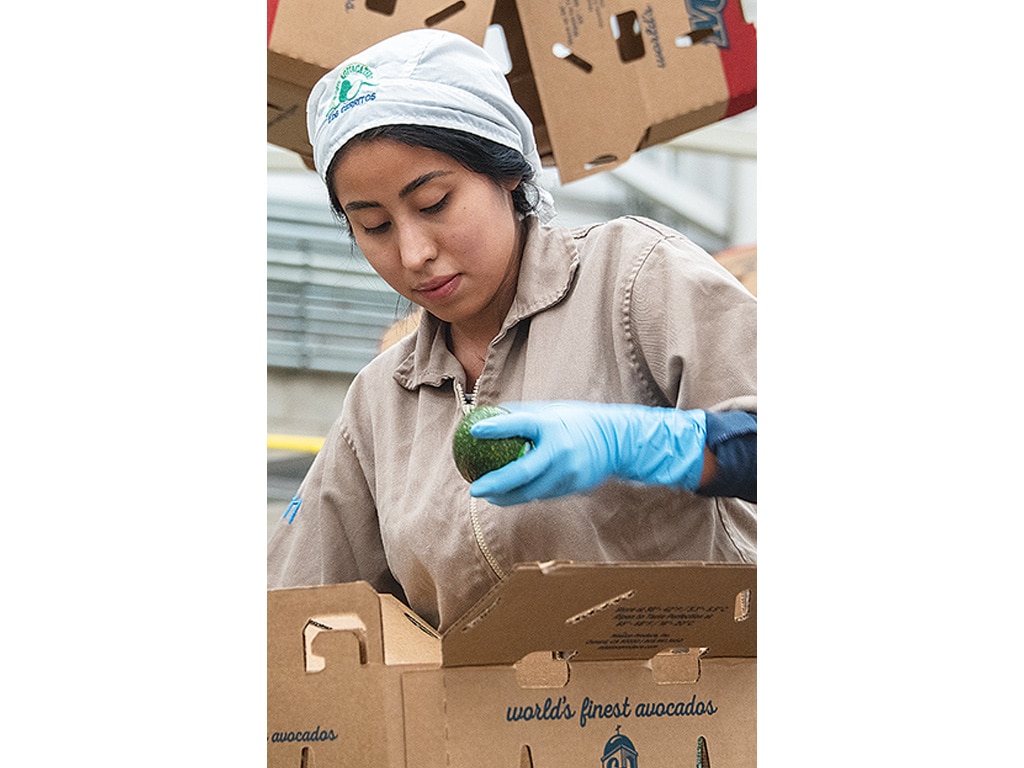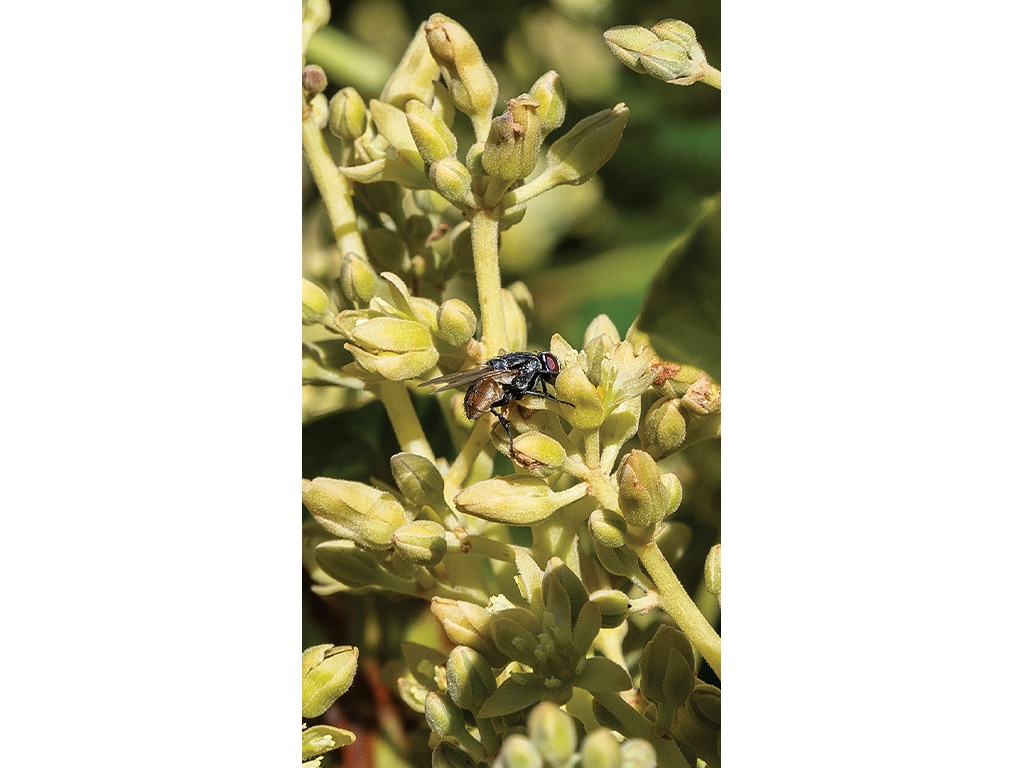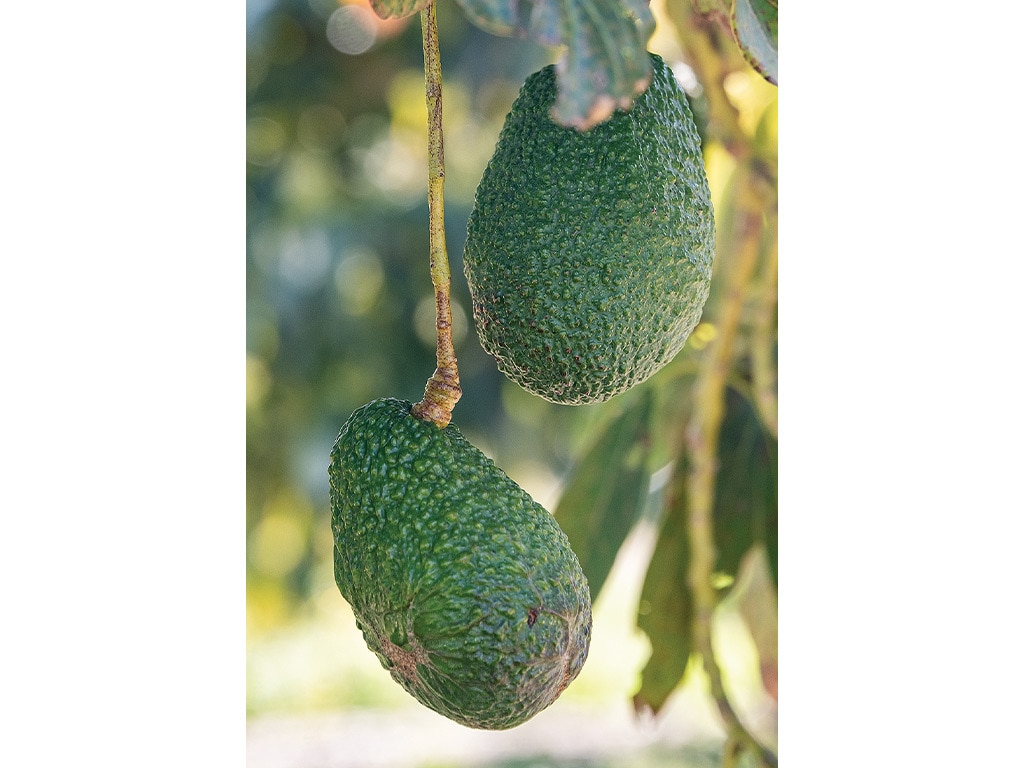Agriculture, Education September 01, 2024
Green Goodness
Avocado growers rise to opportunities and challenges.
by Steve Werblow
Grown in Mexico and Central America for more than 2,000 years, avocados have taken the world by storm recently—especially the U.S., where imports of the oil-rich fruit more than doubled between 2015 and 2022 to a per-capita consumption of 8 pounds. Driven by paleo diets, interest in cholesterol-reducing oil, and the popularity of Mexican food, avocados have become the #6 fruit by sales in the U.S.
The U.S. is home to about 52,000 acres of avocado trees, the vast majority of them on the southern California coast. Harvested April through September, U.S. production in 2022 was 156,900 metric tons. That's a small fraction of the 1.13 million metric tons Americans imported from Mexico the same year, accounting for about 45% of Mexico's production. The U.S. also fills seasonal supply gaps with fruit from Peru, the Dominican Republic, and the world's #2 producer, Colombia.
Mexican expansion. While American acreage has declined, Mexico's industry has blossomed. Until last year, all U.S. avocado imports from Mexico were sourced from Michoacán state or the neighboring state of Mexico. In 2023, after years of work on phytosanitary protocols, USDA approved imports from individually certified growers in the neighboring state of Jalisco.
Saúl Medina, president of producer/packer Grupo Aguacatero Los Cerritos, says his company's Jalisco orchards reflect great advances in production compared to its Michoacán groves.
For instance, Grupo Cerritos' Jalisco orchards are irrigated with drip lines, allowing high-density planting of 550 trees per hectare (222 per acre)—nearly four times the density of its rain-fed Michoacán orchards. The company also seeks to add appeal with its environmental and social responsibility programs.
"We have applied these things in both Jalisco and Michoacán, but we want to be a visionary for other producers, not just in Jalisco and Mexico, but to the world," Medina said through a translator.
Above. About 40% of Grupo Cerritos' avocados are exported from Mexico to the U.S. Grupo Cerrito's expansion to Jalisco boosted its technical and social programs. Saúl Medina (no relation to Jesús) of Grupo Cerritos. Enhancing pollination is a key focus in avocado research. The Hass variety represents 95% of U.S. consumption and 80% worldwide.
Hass solo. One of the unusual aspects of the avocado industry is the almost complete dominance of a single variety, Hass. Patented in 1935 by a California grower, the blackish, pebbly skin was originally a hard sell. But consumers fell in love with Hass' smooth, oil-rich flesh, and growers loved the variety's high yield and long harvest window.
That balances the industry on a very narrow genetic base. It also limits options for both growers and consumers, points out research professor Iñaki Hormaza at the Institute for Mediterranean and Subtropical Horticulture's La Mayora research station near Málaga, Spain.
"You could have avocados 12 months a year in Spain with 4 or 5 varieties, but the main companies don't want to do that—they buy Hass here from November to February and then they buy Hass in Peru, and Hass in Chile and Colombia, and all year 'round they have Hass in the market," Hormaza says. "To me, it's a pity. When you do a tasting and people see the avocados, they will choose Hass for sure. But when you do a blind test, they will not choose Hass. So there are better varieties for the consumers here, but they don't know it because they are not exposed to them."
Hormaza is studying different varieties, improvements in irrigation management, and clues to the genetics that could identify more drought-tolerant avocados.
Water use is already dropping. Water consumption averaged "8,000 cubic meters per hectare [2.6 acre-feet] 15 years ago, and now we are producing avocados with 5,000 cubic meters per hectare, and I think we can do even better with new varieties and rootstocks," Hormaza says.
Another avenue of research is pollination. Just 0.15% of an avocado tree's flowers bear fruit, Hormaza says. Each flower opens twice, blooming once as a female, closing, and opening again as a male. Fertilization occurs in the brief overlap when some of both sexes are open. Adjusting bloom timing and optimizing conditions for pollinators could boost fruit set dramatically.
At La Gitanilla, a 20-hectare (50-acre) avocado, mango, and olive farm nearby in Vélez-Málaga, Spain, Jesús Medina and his family are bucking the Hass-only trend by direct-marketing Bacon, Hass, and Reed avocados by mail. That extends the farm's harvest season, Medina says, and provides a steady flow of top-quality fruit for La Gitanilla's mail-order sales across Europe.
Expect the boom to continue. ‡
Read More

AGRICULTURE, AG TECH
Tech@Work
Smooth and steady—with the help of John Deere technology.






